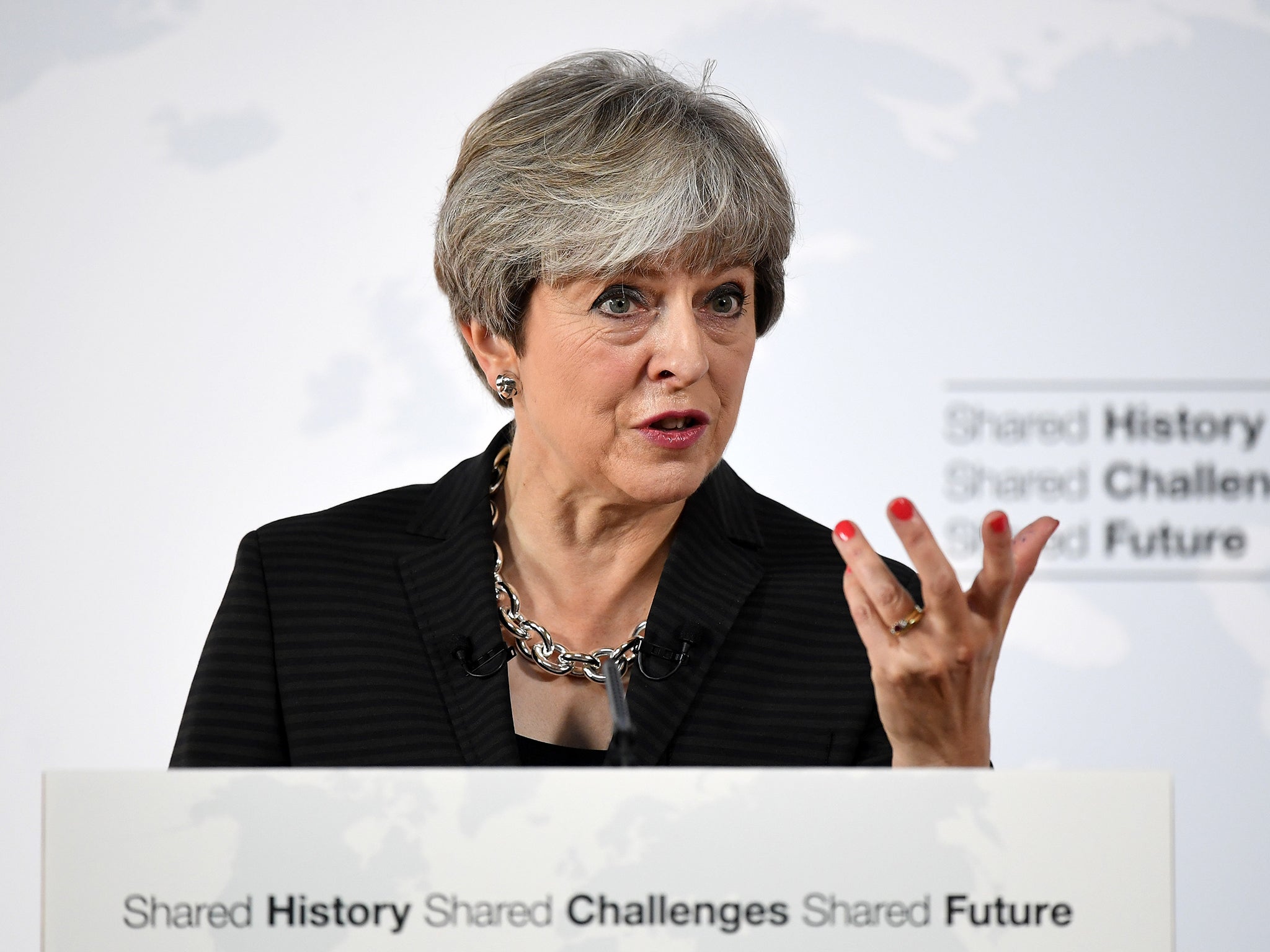Theresa May's Brexit plans in ruins after France and Germany 'reject transitional arrangement'
Proposal outlined by PM in Florence left in tatters after EU 27 countries signal displeasure

Your support helps us to tell the story
From reproductive rights to climate change to Big Tech, The Independent is on the ground when the story is developing. Whether it's investigating the financials of Elon Musk's pro-Trump PAC or producing our latest documentary, 'The A Word', which shines a light on the American women fighting for reproductive rights, we know how important it is to parse out the facts from the messaging.
At such a critical moment in US history, we need reporters on the ground. Your donation allows us to keep sending journalists to speak to both sides of the story.
The Independent is trusted by Americans across the entire political spectrum. And unlike many other quality news outlets, we choose not to lock Americans out of our reporting and analysis with paywalls. We believe quality journalism should be available to everyone, paid for by those who can afford it.
Your support makes all the difference.Paris and Berlin will reportedly reject requests for Brexit talks to move on to a possible transitional arrangement until the so-called “divorce bill” is settled, in a huge setback to Theresa May after her well received speech in Florence.
In that speech, the Prime Minister proposed a two-year transitional period after the UK leaves the EU, in a bid to break the deadlock of the negotiations.
But, according to the Financial Times, any hope of moving on to discussion of establishing a transitional deal will be effectively vetoed by France and Germany, until the question the UK’s exit settlement is fully agreed.
The UK has consistently argued said that “nothing is agreed until everything is agreed” making the point that it is hard to agree on the size of the UK’s financial obligations to the EU until future trading terms are known.
Theresa May said in Florence that the UK would continue current payments to the EU until 2021, and would stay in the single market during that time.
But, according to the FT, when the EU's chief Brexit negotiator Michael Barnier met ambassadors from 27 EU countries the plan was rejected by Berlin and Paris, leaving it all but dead in the water.
Mrs May’s speech in Florence two weeks had been considered an effective intervention in unlocking the talks, but the Prime Minister has since lost momentum after her disastrous Conservative party conference speech, which has caused news to surface of fresh plots to remove her as party leader, further damaging her credibility in Brussels and elsewhere in Europe.
Earlier this week, a leading association of German businesses warned German companies operating in the UK to start preparing for a "very hard Brexit", in which the UK left the EU with no trading arrangements in place. This would lead to the immediate imposition of large tariffs on cars and other goods, and the possibility of customs checks and huge tailbacks at Dover.
Subscribe to Independent Premium to bookmark this article
Want to bookmark your favourite articles and stories to read or reference later? Start your Independent Premium subscription today.
Join our commenting forum
Join thought-provoking conversations, follow other Independent readers and see their replies
Comments